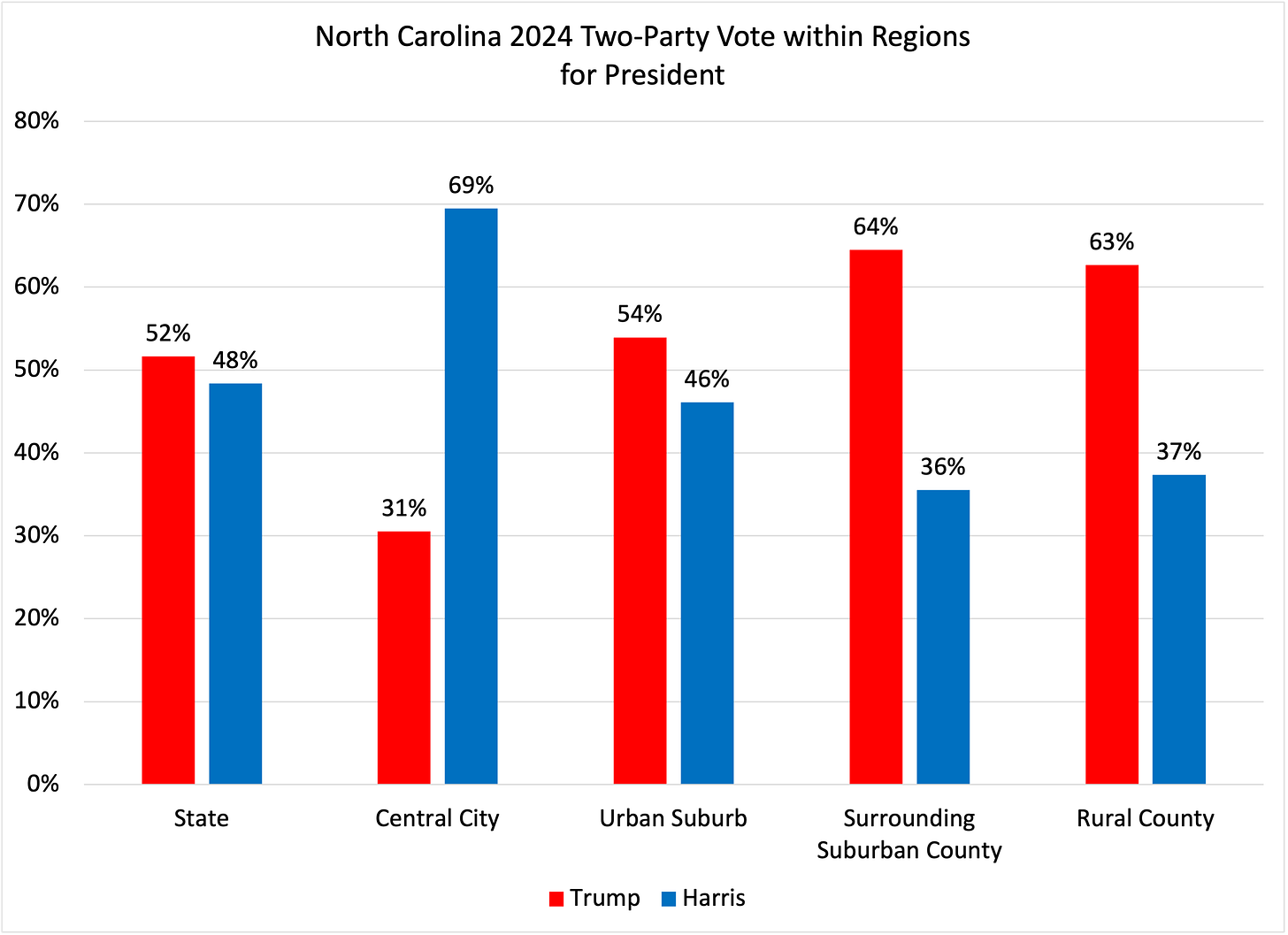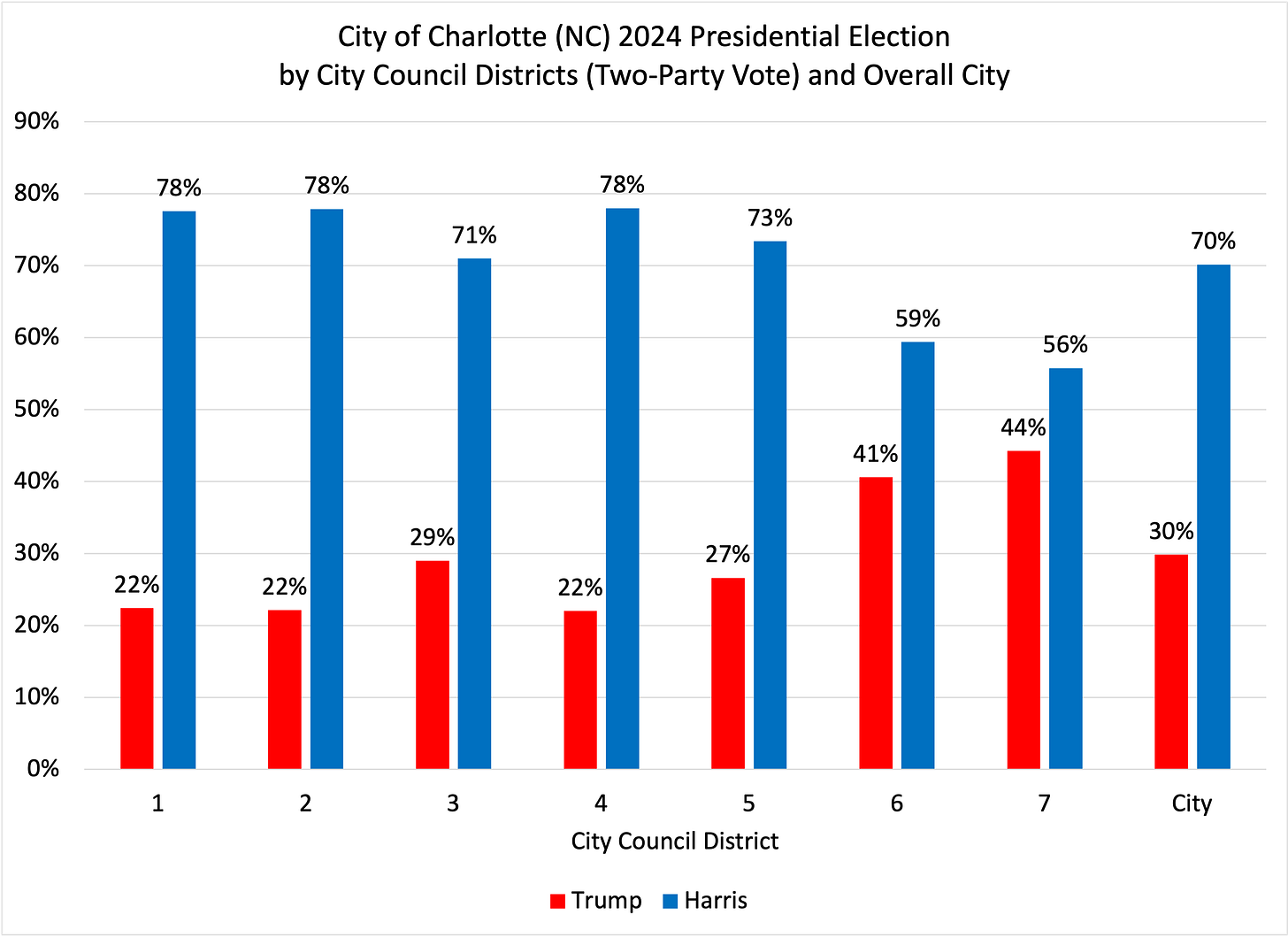By Michael Bitzer
Many will say that 2025’s odd-year election is just that: odd. But for those of us trying to consider what the mid-term election cycle (officially underway as of today, Nov. 5) will portend, the canary in the coal mine has turned blue. Very blue.
Political scientists and knowledgable observers know that mid-term elections tend to be referendums on the president and the president’s party—especially when that party is in control of Congress.
But the 2025 elections point towards a pretty incredible shift in Democratic fortunes from just one year ago.
Just watch the VA counties and cities and their 2024 to 2025 Democratic shift (pay attention to the third column):
Out of the 131 counties and independent cities listed, only five shifted more Republican than in 2024. The remaining 126 went more Democratic than a year ago.
So it was a Democratic wave night. The one thing that I would point out for 2025’s elections is the potential nationalization effect. Here in North Carolina, there were only municipal elections, but they bore the brunt of 2025’s blue wave.
One example I would point to may seem very hyper-local, but I think it exemplifies the dynamic we saw. The City of Charlotte has, like many urban cities, moved into Democratic dominance. The Queen City represents the 70-30 dominance from just last year’s 2024 presidential election. The following graph adds up all North Carolina’s ‘central city’ (i.e., major MSA urban cities) precincts votes for president, compared to the state and the other three regions:
Charlotte’s presidential vote was 70-30 last year, and if you break down how each of the seven city council districts voted, you’ll see a pattern as well.
Districts 6 and 7 are in south Charlotte, and compose the historic GOP wedge of the city, where Republicans strongly dominated for years. But as the overall city moved more Democratic in electoral dynamics, the slow shifting of that southern wedge would feel it as well.
The 2024 election showed that, on the ground, the 6th and 7th were ripe for Democratic pick-ups in the future. When a district moves into almost non-competitive status (60-40 is that marker for me and a lot of observers), it signals a real experiment: can local forces still repel national dynamics, or will “all politics is local” become “all politics is national”?
In the 2023 city council election, incumbent Republican Tariq Bokhari held on to his seat by a little over 300 votes. He then resigned the position earlier this year to take a role in the Trump administration, and vacated the seat. His wife, Krista Bokhari, secured the Republican nomination but even with an ‘incumbent name-ID advantage’ wasn’t able to stem the tide against her.
While Bokhari added a thousand more votes than her husband’s performance two years, the Democratic candidate this year added 4,800 more votes to her performance than the 2023 Democratic candidate.
And it wasn’t just in the Queen City: for example, Greensboro’s mayoral race had a former mayor and business-oriented Republican-aligned running, and he lost by 22 points.
Beyond North Carolina, two other Southern states gave what I, and my colleague Chris Cooper, believe are important shifts from Tuesday night that may be missed. First, the state-wide Georgia Utility Board elections saw two Republicans ousted. And secondly, Mississippi saw three legislative seats flip from Republican to Democratic control due to court-ordered redistricting. Georgia, of course, will see a highly competitive U.S. Senate race with a Democratic incumbent defending that seat.
Of course, November 2026 is a year from November 2025, and the question for a lot of us watching the mid-term cycle begin is: can this energy and ‘wave’ continue and build into the next year? Some markers to watch about that: the president’s popularity, or more importantly the lack thereof; the economic conditions; and what kind of candidates are picked for the general election, especially in competitive environments like North Carolina.
But for some races that may seem more ‘likely’ to one party (in this case, Republicans), the lesson out of Tuesday’s election for 2026 is: how likely ‘safe’ is a contest in this kind of environment?
Dr. Michael Bitzer is a professor of politics & history and director of the Center for North Carolina Politics & Public Service at Catawba College.



